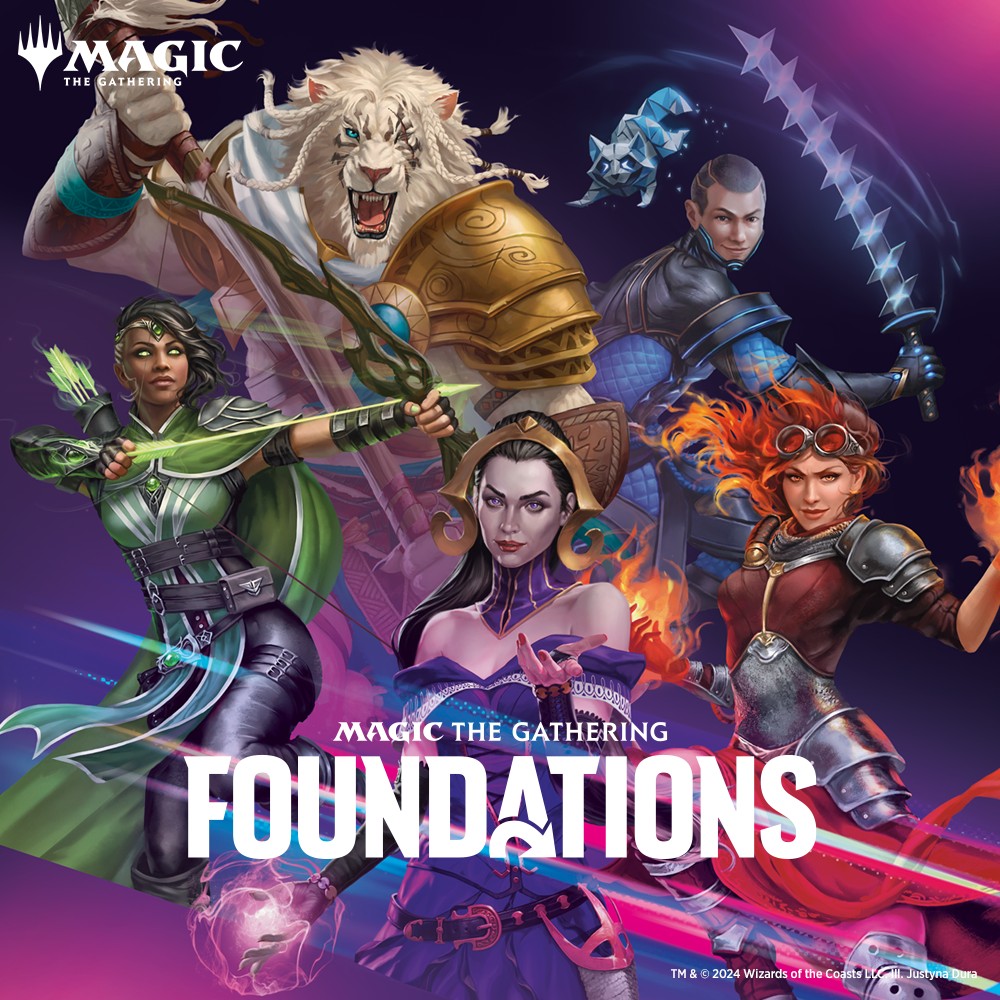Despite the number of officially sanctioned formats in Magic, players can’t seem to help tinkering with the rules of the game. Sometimes it’s unintentional - like when I first learned the game from a 4th edition rule book and thought you had to pay the mana cost of a creature to untap it (Eternal Warrior was so broken), but usually it’s small “house rules” like allowing one free mulligan or banning mass land destruction. When taken to the extreme this kind of tinkering can lead to entirely new Magic formats - several like Bangmander and League have been discussed on MTGCanada previously. Today I’d like to share two new sealed formats I’ve recently brewed up: Trophy Sealed and Rotating Sealed.
Trophy Sealed
Trophy sealed was inspired by “ante league” - which is a casual format that sees each player take any 3 booster packs and 5 of each basic land and shuffle it all together to form their deck. Games are played for ante with the loser autographing the cards they lose and the winner forced to play whatever they win. The format is something like 90% mana screw, 10% hilarious. Trophy sealed seeks to bring out the best parts of ante league while solving the mana problem.
To this end, in trophy sealed you build a deck of exactly 40 cards from a sealed pool of cards. Instead of playing for ante the loser of each game provides a “trophy” to the winner, the trophy being any nonland card from the loser’s pool, which is autographed and then must be played in the winner’s deck. To make things interesting the costs and abilities of trophies may be paid using any colour of mana. Remember decks are exactly 40 cards so you must remove cards to make room for your trophies. Trophies are usually terrible cards so the more you win the worse your deck gets, and the harder it gets to keep winning!
While the initial card pool for trophy sealed could be formed using regular booster packs I prefer to build them myself out of bulk commons and uncommons. This makes the event free to play, gets use out of otherwise useless cards, ensures the pools are relatively balanced, and avoids any cards that might not work well with the format (think of Thassa’s Rebuff as a trophy to a non-blue player). I like to make each pool just three colours - one for each wedge and shard in Magic (Bant, Mardu, etc). With 3 colours you can start with a smaller pool too which makes deckbuilding a little quicker. I’ve found 45 cards to be balanced for a three-colour pool - 10 cards of each individual colour and then a 15-card mix of colourless and multicolour cards including some nonbasic lands.
In my experience with this format, the trophies were invariably the highlight of the games. You’ll find yourself doing things that otherwise never happen in Magic like casting a Lost in the Mist in an Abzan deck or surprising your opponent with a clutch Demystify in an Izzet deck. The winner - to the extent it matters - would be the player with the most trophies at the end of the session; but really it’s all about the pride of taking trophies from your foes and then seeing crazy board states where fringe unplayables turn into surprise all stars.
All in all this is a fun format that can be used for things like general game nights where you might have a mix of board games and magic, or any event where you have socializing with a mix of magic players and non-magic players.
Rotating Sealed
Do you keep that red bomb or shore up your green playables?
For the better part of the past three years, the go-to format for my playgroup has been a four-session Magic League that blends limited with constructed. The highlight of league is that you can trade your league cards with other players - or at least it used to be the highlight. Over time players got better and better at optimizing trades, but at the cost of increasingly complex conditional trade proposals. At some point trading went from being a fun quirk of the format to a burden of complex spreadsheets, and so we started looking into alternatives that could "make league great again". The solution - or so it seems so far - is rotating sealed.
Similar to league, rotating sealed works best over four sessions and can use the same scoring scheme. Session one starts off like any classic sealed event - 6 booster packs to build a 40 card deck, play matchups best 2 out of 3. However rather than keep the same sealed pool for all four sessions, the pools are randomly rotated at the end of each session. The interesting twist is that you get to keep 10 cards from the pool you’re about to pass, and will then randomly receive someone else’s pool minus the 10 cards they chose to keep.
Tip for randomizing pools quickly: Have everyone gather around a table with the cards they are passing (should be 74 if they keep 10). Roll a D6 once - on odd you pass left on even you pass right, then roll it again and that tells you how many times to pass the cards in that direction (re-roll if it would somehow result in everyone getting their own pool back).
My experience with the format was that choosing which 10 cards to keep is difficult. There’s tension between just keeping your ten best cards in the abstract and trying to cluster your keeps in one or two colours with less powerful cards to increase the odds you can play all of them. There can be some real feel-bads when you keep all green and red cards and get passed a pool that has been stripped of both colours by previous players. I plan to experiment with a higher number of keeps - probably 14 - to see if this helps reduce the likelihood of getting randomly wrecked by receiving a pool that doesn't work at all with your kept cards.
The great thing about rotating sealed is that other than the first session you get a whole week to review your pool, goldfish some ideas and ultimately settle on the 40 card deck you want to play. If you're like me anytime I do an actual sealed tournament I invariably realize at the end of the first round that I have not actually built the best deck out of my pool. With rotating sealed you might still get it wrong, but it won't be due to lack of time. All in all, rotating sealed is kind of like getting to play four sealed events for the price of one, as well as a unique hybrid of sealed and draft.
And there you have it - two new ways to play sealed. Neither of these formats is going to be the next Commander, but if you have a dedicated playgroup that meets regularly rotating sealed may be a fun one to try, or if you want to have a one-off event of a weird format trophy sealed could be good for some laughs.
Until next time, good luck brewing up your own formats and customized Magic rules!


